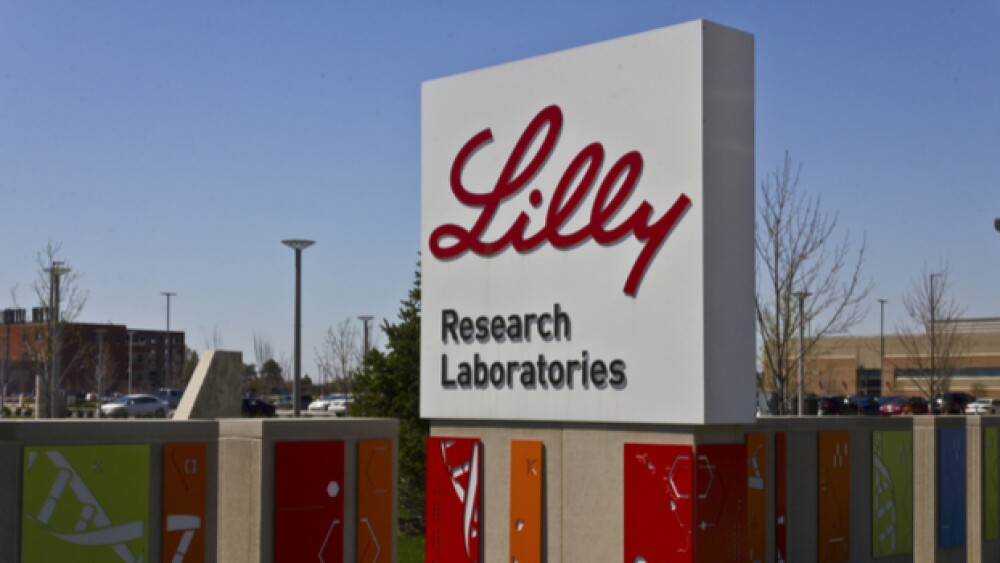Eddingpharm forked over $375 million for the rights to sell Ceclor and Vancocin in China, as well as a manufacturing facility that makes the two medications.
Jonathan Weiss / Shutterstock.com
Eli Lilly has inked a $375 million deal with China-based Eddingpharm for the rights to two legacy antibiotic medicines and manufacturing facility in Suzhou, China.
The sale of off-patent drug assets in China has been a potential revenue source goal for Eli Lilly as it looks to raise funds to support the development of high-growth products at home.
Eddingpharm, a specialty pharmaceutical company in China, acquired the Chinese rights to sell Ceclor and Vancocin. The Chinese company also gained the manufacturing facility that produces those two medications as part of the deal, Eli Lilly announced this morning. Lilly said the employees of the Suzhou factory will be offered the opportunity to remain at the facility and continue to work with Eddingpharm. Under terms of the deal, Eli Lilly will provide ongoing services to Eddingpharm for a period of time to ensure continuity of product supply and support the smooth transition of the facility.
Julio Gay-Ger, president and general manager of Lilly China, said the Indianapolis-based company is committed to improving the health of the people of China.
“This transaction will enable Lilly China to better focus our resources on the exciting new therapies that we are launching in our core therapeutic areas, so that we can bring more life-changing medicines to patients in China,” Gay-Ger said in a statement.
Eddingpharm Chief Executive Officer Xin Ni said both of the Lilly antibiotics, Ceclor and Vancocin, have been on the Chinese market for more than two decades. The names of the medications have earned the trust of both patients and physicians in China, Ni said. That legacy of efficacy and trust is something that Eddingpharm intends to carry on in the coming years.
“We look forward to maintaining high standards of operation, supplying products with the best quality, and serving more patients in need in China,” Ni said in a statement.
Under terms of the deal, Lilly will receive a deposit of $75 million, followed by a payment of $300 million upon the successful closing of the transaction. The transaction is expected to close in either the latter part of 2019 or early 2020, Lilly said. The transaction will not be reflected in Lilly’s reported results and financial guidance until closing, the company said.
China has become a nation of opportunity for Eli Lilly and other western pharmaceutical companies. Last year, Eli Lilly secured its toehold in China, a market that is expected to see exponential industry growth by 2022, through a partnership with China’s National Center for Cardiovascular Diseases. The partnership is across four strategic initiatives that are expected to advance the understanding of type 2 diabetes and related complications, such as cardiovascular disease.
Last month, Eli Lilly signed an exclusive agreement with Transcenta Holding for a portfolio of novel biotherapeutics programs in the area of bone diseases for development and commercialization in China. The programs include the phase II-completed Blosozumab, a humanized antibody to sclerostin being developed as a treatment for osteoporosis, the companies announced.





